Letter from Africa Series, Abuja
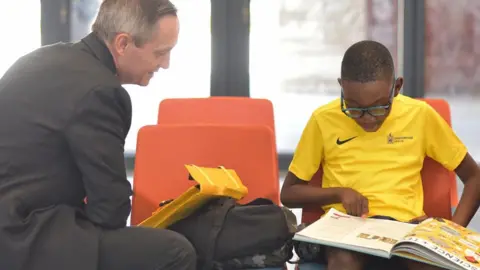 Charter
CharterFor many years, well -connected Nigerians have sent their children to prestigious British boarding schools, but now some of these institutions are creating campuses in the most populous nation in Africa.
Last year, Charterhouse launched an elementary school in the city of Lagos and will open a high school this September.
Rugby School will also start offering secondary education in September. Other well -known institutions, such as Millfield, Wellington School and Harrow, are also exploring opportunities in Nigeria.
All of this includes a price label for Nigerian parents, but the well -cut elite of the country has historically sent their children to the United Kingdom for Secondary Education, attracted to the rigor of the British curriculum, in the prestige and global opportunities.
« I am actually excited about this, » says Karima Oyede, a British-Nigerian management consultant, whose son is currently in the year 10 at Rugby in the United Kingdom, but will move to his Lagos school in September.
His family intends to move to Nigeria for a while, but he has not done so earlier because of the education of children.
« Having the opportunity to experience the British system in its country of origin is the best of two worlds, » he says.
Nigeria already has a proliferation of private schools, but high quality and internationally recognized education in the country will appeal to many parents, especially those who want to preserve the cultural identity of their children.
« African parents love the fact that they are giving their international children to compete with their counterparts in any other part of the world, but do not want their children to lose their African, » says Ijay Uwakwe-Okoronkwo, the founder of the Nkuzhi Learning Foundation in the capital of Nigeria, Abuja.
The educational consultant, who advises parents and schools on international boarding options, explains that the more relaxed and less respectful attitude that children return after going to school abroad is not always appreciated.
This cultural dilemma extends to the growing conversation around LGBTQ problems. Same relationships and public exhibitions of affection are illegal in Nigeria and homosexuality is not discussed or promoted openly.
It is something that has assumed the new cultivation of British schools. For example, while Charterhouse UK shows a rainbow flag, Nigeria’s school is not.
« We are a British independent school, but we firmly sit within the Nigerian cultural needs, » says John Todd, head of Charterhouse Nigeria.
“There is this enormous concern about Western cultural opinions.
« For parents here, we know it’s a really big problem. It’s a reason why parents are worried about schools in the United Kingdom.
« I’m not doing a judgment, it’s how it is. »
British institutions in Nigeria have no choice but to « follow the Earth’s law, » he acknowledges, adding: « We are compatible with 100%. »
Recognizing the deeply religious society of Nigeria, Charterhouse also allows parents to bring their children to the house of the pension for Sunday church services, hoping that they will return on Monday morning.
 Charter
CharterThere are several reasons behind the growing interest of the prestigious British schools in the opening of campuses in Nigeria.
Although regions such as the Middle East and China are already saturated with international schools, Africa is a relatively virgin territory.
« Nigeria is the gateway to Africa, and Africa is the last continent for British schools to establish, » says Mark Brooks, an export champion of the Business and Trade Department of the United Kingdom.
Organized by annual events in Nigeria where about 20 British schools are with future students and parents.
« Nigeria has an incredible reputation for producing promoted and high level students, » says Brooks.
« There is no school to work recently that a Nigerian student served as a boy or attached.
« Over the years I have brought hundreds of teachers from head to Nigeria and the word is in the United Kingdom that we must take seriously Nigeria. »
Synchronization has also been key as the cost of sending children to the UK has increased. Just three years ago, the local currency change rate was 500 Naira at £ 1; It is now 2,200 Naira.
In addition, the UK’s labor government recently imposed 20% VAT on private school rates.
Beyond enrollment, families face additional expenses, as well as flights for both students and visiting parents.
The establishment of these schools in Nigeria allows families to maintain the same level of education while significantly reduce the financial tension.
The annual rates in Charterhouse UK, for example, are around £ 60,000 ($ 78,000), while rates on their Lagos campus equals about £ 15,000.
« Our main classroom teachers are expatriate, but 90% of staff are local, » says Todd.
Through local people such as assisting teachers, administration, finance, human resources, marketing, facilities, security, gardeners, drivers, step and secretaries, the school can significantly reduce costs compared to the United Kingdom, where labor is much more expensive.
A great educational gap already exists in Nigeria, and many parents opt for private quality varied education. Many are struggling to pay the highest fees instead of sending their children to government schools, which are often free of charge, but are plagued by poorly trained teachers and frequent strikes.
As a result, the arrival of British schools may not change the Nigeria education system dramatically.
However, they could represent a threat to established elite schools such as the British International School in Lagos and the Regent School of Abuja, which opened in the early 2000’s.
These schools have long been the best options for those who can pay the annual enrollment rates that often reach tens of thousands of dollars.
« The Nigeria Rugby School is also achieved to support, develop and learn from schools currently in Nigeria, » says Brooks, who is responsible for the school’s marketing.
« We also come to help with collaborations, teacher training and a whole range of initiatives. »
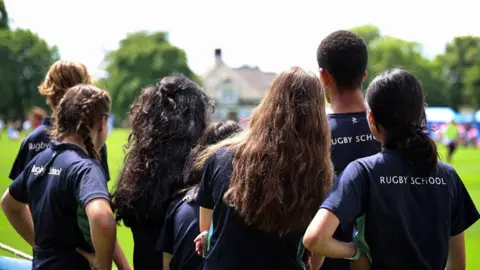 AFP
AFPTodd believes that the Nigerian market is large enough to accommodate all new schools without threatening the existing ones. About 40% of 200 million population are under 14 years old.
Hopes that the greatest impact will be felt in the United Kingdom.
Although Charterhouse UK usually has a long waiting list and should not be affected, less searched boarding schools may experience a decrease in enrollment due to the new competition in Nigeria.
« Interest in our high school is very strong, » says Todd. « We already have Nigerian parents in the United Kingdom sending their children to the Nigeria Charterhouse for September. »
In fact, reaching the Nigerians in the United Kingdom has been one of its main marketing strategies.
« Get this premier brand at a lower price and all Nigerians have an aunt or uncle in Lagos » who can be a tutor, he adds.
It could be that this trend will extend to British universities. Nigeria’s tertiary education system faces even greater challenges than their secondary sector, with many students who choose to study abroad.
In 2023, Nigeria ranked among the first 10 countries of the student visas in the United Kingdom, according to data from the United Kingdom government.
But with difficulty currency and strictest visa regulations, studying abroad is becoming increasingly difficult, and universities that are based on higher international license plate rates seem to suffer.
Earlier this month, British Member Helen Hayes, chair of the Parliamentary Education Committee, acknowledged that the Higher UK sector was in trouble.
« Dozens of universities are making layoffs and cuts in the courses, trying to keep floating in the midst of uncertainty about where their money comes from » Said when he announced a session to consider the future of the sector.
If enough Nigerian students can no longer go to the UK to study, British universities may be profitable to come to them, as they have in other parts of the world.
In fact, the Premier University of Nigeria, the University of Ibadan, was established in 1948 as a campus of the University of London, with degrees awarded with the same value and prestige.
Ms. Uwakwe-Okoronkwo believes that many Nigerian parents would appreciate this opportunity, as they would allow their children to stay in Nigeria enough time to mature before moving abroad, if they choose to do so.
« Many parents are worried about sending their children out of the nest too early, » he says.
For Ms. Oyede, whose daughter will also begin in Rugby School in Lagos in September, the calendar of all this could not be better.
She says that the opening of the British school has already been an « incentive to return home ».
The perspective of university opportunities would be a welcome bonus.
Adaobi Tricia Nwaubani is a Nigerian autonomous journalist and novelist based in Abuja and London.
 Getty Images/BBC
Getty Images/BBC
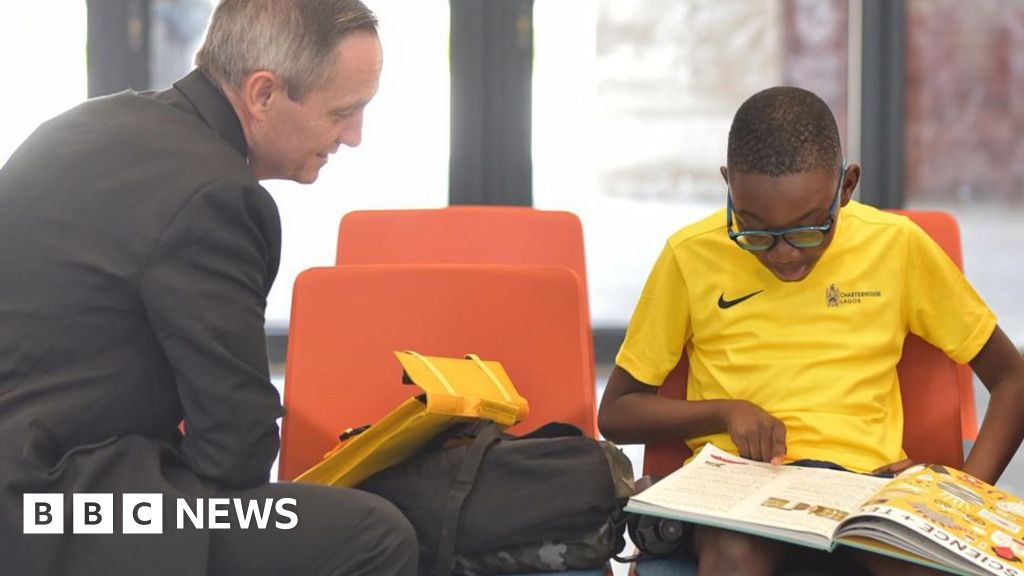


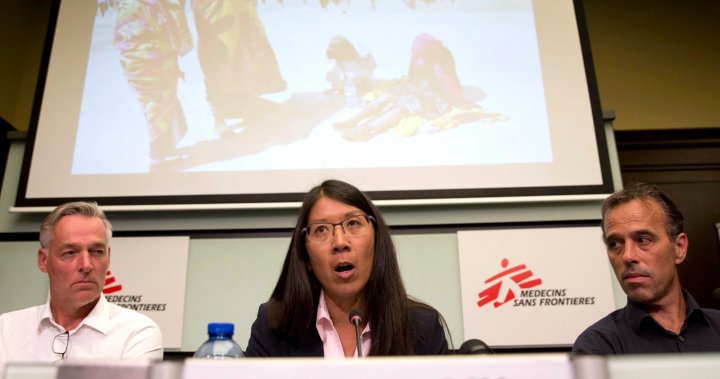
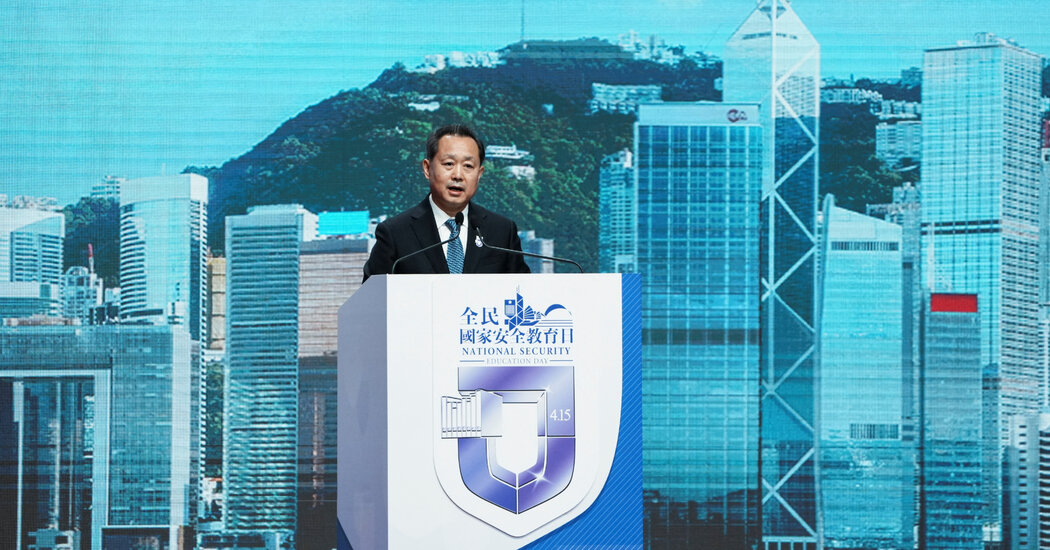









Leave a Reply